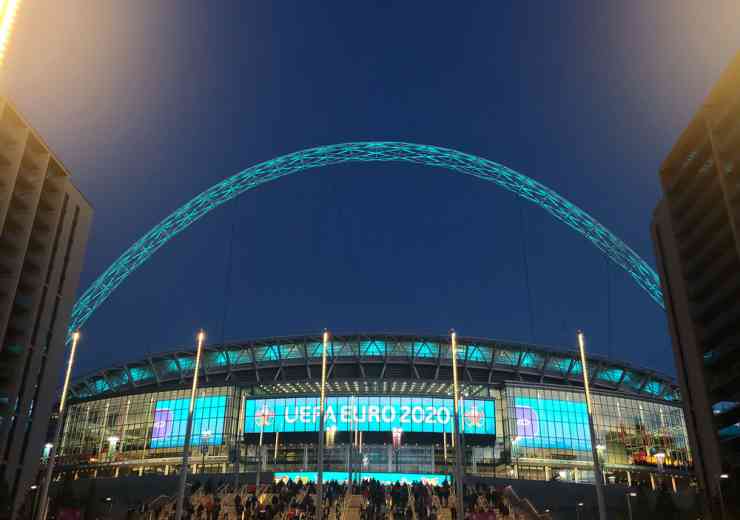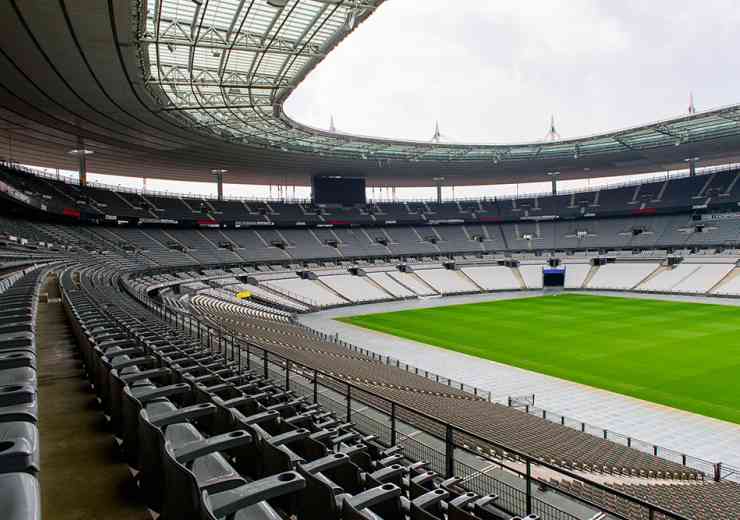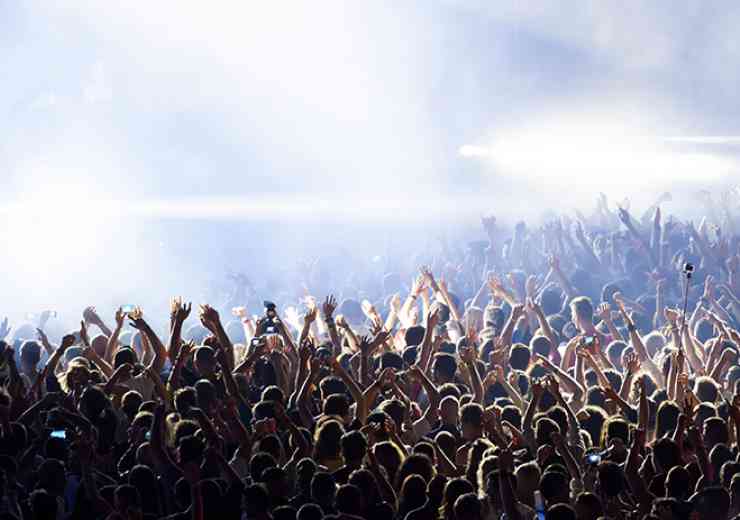Bringing home the gold in event security

Event security is now, more than ever, subject to fierce public and governmental scrutiny, with the increased threat of terrorism and the advent of high profile events such as the Royal Wedding in April and the London 2012 Olympic and Paralympic Games. Effective security for these types of high profile public events require a coordinated approach by both the public forces and the private security sector; all aspects from the management of crowds, the monitoring of access points and the protection of high profile attendees must be given the maximum consideration, whilst ensuring that security strategies do not get in the way of the smooth running of the event.
Safety and Security Strategy
The recent publication of a revised Safety and Security Strategy for the 2012 Olympic and Paralympic Games, setting out the key aims and objectives for Police, government agencies, organisations and departments responsible for delivering a secure event, has renewed the focus on the importance of ensuring the effective and safe delivery of high profile events.
The document outlines the key security threats faced by the Games, citing terrorism, cyber attack, international military crises and major accidents or natural hazards as the most significant risks, and acknowledging the additional security requirements of non-competition venues nationwide, such as hotels, airports, training venues and live screenings.
Therefore, security measures for such events need to be sturdy and reliable, but not too invasive, to ensure the protection of event attendees and staff, without ruining the experience for the spectators. Sections within the British Security Industry Association (BSIA) such as Crowd Management, Police and Public Services, Security Guarding, Access Control, Close Protection and CCTV all have extensive experience in carrying out security functions during events of all kinds.
Public and private forces
Public forces are often involved in high profile event security, where an extensive number of officers are required. However, in times where resources are already stretched to the limit, the private security industry can be of great assistance by alleviating the pressure on the police force and by picking up some of the functions required to secure events.
For the London 2012 Olympic and Paralympic Games, the Police will be heavily supported by the private security industry, and even the largest of private security contractors will be working with smaller companies to provide effective security. The BSIA is engaging early with the Association of Chief Police Officers (ACPO), as well as government departments such as the Olympic Security Directorate (OSD), Olympic Delivery Authority (ODA) and the London Organising Committee for the Olympic Games (LOCOG), to ensure that the effectiveness of this working relationship is maintained in the run-up to the Games.
Crowds and individuals
During events, crowds can vary from hundreds to hundreds of thousands, but in all cases it is always advisable to ensure crowd management and security guards are constantly on hand, be it to act as deterrents to possible criminals hiding in the mass or to maintain order should there be a threat of fights breaking out. Officers’ duties include crowd management, operating of electronic security systems such as CCTV and access control, car park attendance and general monitoring duties.
Security personnel also provide a physical presence on the day and are a useful port of call for members of the public requiring assistance or information. Moreover, they cover the essential role of ensuring the health and safety of the event and guiding the crowds through emergency procedures. In total, it was estimated that around 15,000 security personnel were on hand throughout Vancouver 2010 Winter Olympics, a 3:1 ratio of security guards to athletes, with an estimated total security cost of over £600 million.
CCTV
Although guarding and crowd management teams are excellent ways to ensure the security of an event, they are often not enough. CCTV footage helped make important convictions following the disastrous 1985 European Cup Final between Liverpool and Juventus FC at Heysel Stadium in Brussels, where 39 people died after fights broke out. These systems are now installed on almost every London football ground, acting as a deterrent as well as allowing officers to review the video content after incidents occur, to gain an understanding of how events unfolded and to secure convictions. In addition, a particular application of CCTV technology, known as Video Content Analysis, can now be applied for external and internal intruder detection, the monitoring of buildings for health and safety, people counting, automatic event and incident detection, safety enhancements for public areas, smoke and fire detection and camera failure or sabotage detection.
Access control
Access control systems allow event organisers to control the traffic of people in the premises and to keep away unauthorised visitors. The systems are widely used across the events industry, and there are a number of solutions that can be employed to ensure speedy yet effective monitoring of access points.
For outdoor events, portable turnstiles are simple to transport and use, only needing a power plug and an IP point to operate. These types of flexible access control points are ideal for outdoor music festivals or gatherings, as they are hassle free to transport and install, yet reliable and sturdy in ensuring only authorised people will have access to the area.
Sporting grounds make use of access control systems as well. Many of the major football stadia in the country have started adopting full height electronic turnstiles, often combined with smart cards, to help identify individuals entering the stadium. Amongst the many uses of these systems, they allow organisers to calculate visitor flow in and out of the premises, monitor how many seats are left and estimate fill times.
In addition, access control systems carry out an important health and safety function, by producing an accurate register of the number of people within a building or area in case an evacuation needs to take place.
Close protection
Close protection officers are a must when protecting VIPs such as celebrities and politicians attending events, especially well-publicised or controversial ones. In the case of the London 2012 Games and the Royal Wedding, heaps of high profile attendees are expected to partake in the celebrations, including national and international politicians, celebrities, members of the Royal Family and well-known sport personalities.
The close protection officer’s work starts before the event, with the in depth scrutiny of the venue to ensure all angles are covered. In most scenarios, officers must ensure that high profile attendees are able to go about their daily business with almost an invisible bubble around them, reacting only when required.
All the individual security requirements for each VIP will need to be integrated in the wider security strategy for the event, adding to the pressure on event organisers to make sure all aspects are being considered. Therefore, communication amongst the various security teams and providers involved needs to be accurate and efficient before, during and after an event.
Sharing best practice
Although security strategies need to be targeted to the individual requirements of each event, it is not uncommon for organisers to share best practice with each other, to avoid the same mistakes being repeated twice. Earlier this year, the British Security Industry Association’s project director for 2012, David Evans, visited Brazil as a member of a UKT&I DSO delegation. The visit was part of an arrangement by which cities which host the Olympic & Paralympic Games share their planning and hosting experience so that the Games are in a virtual cycle of improvement. Rio de Janeiro will host the Olympic and Paralympic Games in 2016. In addition Brazil will host the FIFA World Cup in 2014.
The bigger an event, the greater the scope of a security strategy, which will cover not only the areas where the event will take place but also equally impacted premises such as athletes or performers’ residences, hotels, local attractions, transport system, etc. For this reason, cooperation between public forces and experts in the private security industry is essential.
The number of products and services available for event security goes beyond the above list, to include also physical security equipment – such as fences – property marking for valuable equipment, electronic security systems, etc. Companies from across the BSIA’s 17 sections of membership have expertise in securing all kinds of events, both large and small. BSIA members meet strict corporate requirements, so customers who source security solutions from them can be confident that they will receive quality advice and an excellent service.
For more information:
Web: www.bsia.co.uk
















